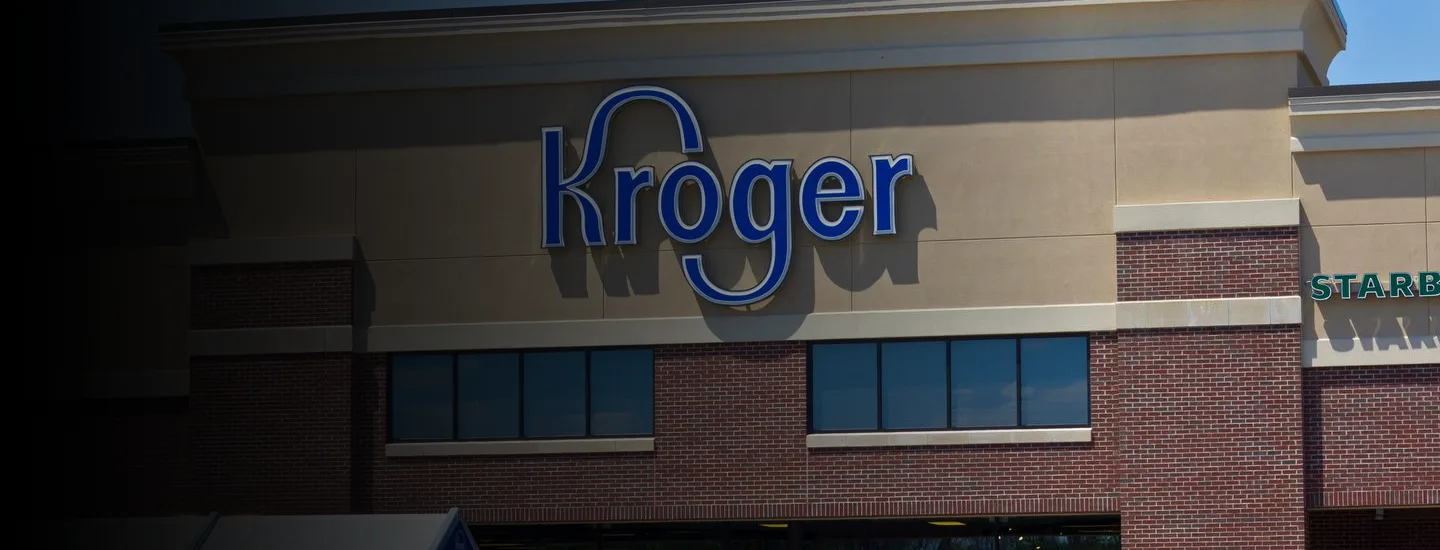Most of the public conversation around the proposed Kroger-Albertsons merger has focused on the ways in which the combination will threaten other grocers. What hasn’t been discussed nearly as much, if at all, are the unique opportunities the merger will create for astute competitors.
As Kroger and Albertsons navigate the regulatory process and political opposition, they have pushed the expected close from early 2024 to the first half of the fiscal year. We believe that, while the transaction might take longer than anticipated or end up looking a bit different in terms of the divestitures required, it will happen. Grocers need to be planning now for how they will respond.
Mergers inevitably require an outsize amount of leadership focus, creating disruption and distraction. Once the FTC gives the Kroger-Albertsons combination the green light, the subsequent integration will be the most complex in the history of grocery. While Kroger and Albertsons are occupied with combining parts of their businesses and working to realize the synergies identified during pre-close planning, other grocers can be strengthening their competitive positioning and gaining ground.
It matters not only how other grocers respond to the merger but how quickly they do so. Speed is needed for grocers that want to enter this next era of the industry as prepared as possible. The following areas in particular are opportunities that merit consideration.
Local Offer: In previous acquisitions, Kroger has realized efficiencies by homogenizing assortments to some degree, including through the addition of its private labels. As a result, Kroger-owned banners are easily recognizable as such. Other grocers may find they can differentiate themselves by doubling down on localization and entrusting their stores with more freedom in buying and merchandising so they can be hyper-relevant in the neighborhoods they serve.
Frontline: Kroger has committed to investing $1 billion in wage raises and employee benefits, so while other grocers need to take an honest look at their pay structure, they also need to evaluate overall employee experience. Most employees value more than just money; department managers, for instance, generally appreciate more leeway to make decisions for their departments. Ongoing training is another important consideration. To win the talent pool, grocers need to position themselves as great opportunities for people who want a career rather than just a job. Contributing toward general education and certificate programs is a great practice, and so is a discipline of regular career path conversations with employees to understand their interests and discuss the options available.
Leadership: Some duplication results from virtually every merger, and given the scale of a Kroger-Albertsons combination, the amount of corporate office talent hitting the market has the potential to be substantial. Grocers should consider now in which areas they would benefit from additional expertise and outside perspective, and they should prepare to be aggressive in pursuing people who could fill those gaps.
Pricing: It wouldn’t be prudent for grocers to be price-competitive with Kroger-Albertsons on every item – especially given Kroger has committed to investing $500 million to lower prices following the merger close – but grocers can start the process now of tweaking (or overhauling) their pricing and promotional strategies to ensure that they remain priced right on the items that matter most to their customers and that they’re not sacrificing margin on the items that aren’t critical to their shoppers or their price image.
Combinations: Given the buying power a Kroger-Albertsons merger will create, it makes sense for grocers and wholesalers to study the landscape and evaluate opportunities to gain scale themselves, whether through partnerships or acquisitions. As the industry continues to consolidate, grocers should understand their strengths and vulnerabilities and constantly be assessing who potential allies could be. Diligently monitoring for opportunities will be even more important given the recent share capture by Walmart, Amazon and Costco; the addition of another major player in Kroger-Albertsons will likely accelerate that trend.
Digital: Kroger and Albertsons have each devoted significant resources to building impressive data capabilities. Other grocers can broaden their horizons in this arena by reviewing their own digital infrastructure to understand what they know and what their blind spots are and to ensure they’re connecting with their customers in the most relevant ways.
When Amazon bought Whole Foods back in 2017, there was plenty of frenzied conversation about how the acquisition would change the industry, but at the end of the day, most grocers didn’t make significant changes in response to the transaction, and for the most part, they didn’t need to. We believe the Kroger-Albertsons merger is different.
This time, grocers can’t afford to not respond. Those who take a “wait and see” approach, confident they can continue with business as usual for another few years, might just find themselves having fallen behind to such a degree that they struggle to recover. The time to act is now.
Want more? Check out these other recent insights from the grocery experts at AlixPartners:
Prioritize selling conversations with your suppliers
Unite your merchants, your marketers and your stores
Lean into omnichannel to expand your experience advantage

